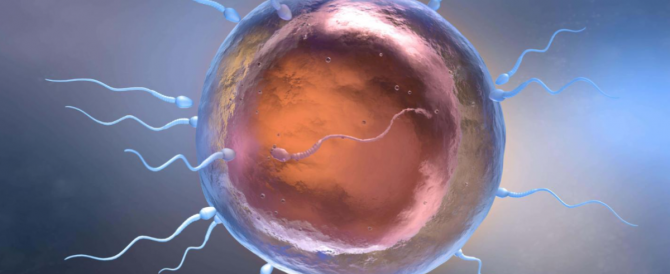The fluid that surrounds an egg when it is released from the ovary acts as a chemical attractant to sperm, but may also select sperm from certain males over others.
Researchers from the universities of Manchester and Stockholm showed that follicular fluid contains chemical signals that improve the chances of successful fertilisation in humans.
‘Human eggs release chemicals called chemoattractants that attract sperm to unfertilised eggs. We wanted to know if eggs use these chemical signals to pick which sperm they attract,’ said lead author Dr John Fitzpatrick from Stockholm University.
The team used samples of sperm and follicular fluid from 16 couples undergoing assisted reproductive treatment. Sperm were able to swim towards either of two follicular fluids in a dish, or one follicular fluid and a control substance. Sperm swim through follicular fluid on their way to reach an unfertilised egg.
The researchers found that each woman’s follicular fluid attracted more sperm from some men than others. There was no obvious pattern to explain which man’s sperm would be attracted to a woman’s follicular fluid; it appeared to be random and didn’t necessarily correlate with a woman’s chosen partner.
“It was a real surprise,” says Fitzpatrick. “This is the first time this has been described in humans It is possible that eggs are more attracted to genetically compatible sperm, which may increase the chance that they are fertilised”.
The researchers measured the number of sperm that were able to move into each follicular fluid sample. They found that the average difference in sperm count between the fluid that attracted the most and the least sperm was approximately 18 per cent.
“Eggs attracting around 18 per cent more sperm from specific males would likely be pretty important during fertilisations inside the female reproductive tract”, since only a small fraction of sperm reach the egg after sex, says Fitzpatrick.
The chemical interactions between eggs and sperm after sex may also play a role in why some people have difficulty conceiving. In around one in three couples who have fertility problems, there is no clear cause, says Fitzpatrick.
‘The idea that eggs are choosing sperm is really novel in human fertility,‘ said senior author Professor Daniel Brison, from the Department of Reproductive Medicine at Saint Marys’ Hospital, Manchester. ‘Research on the way eggs and sperm interact will advance fertility treatments and may eventually help us understand some of the currently ‘unexplained’ causes of infertility in couples.’
Future studies need to explore whether the same interactions are also present in regular mammalian (particularly human) reproductive cycles, away from the context of assisted reproductive treatment.
The research was published in the Proceedings of the Royal Society.
Read more: https://royalsocietypublishing.org/doi/10.1098/rspb.2020.0805
